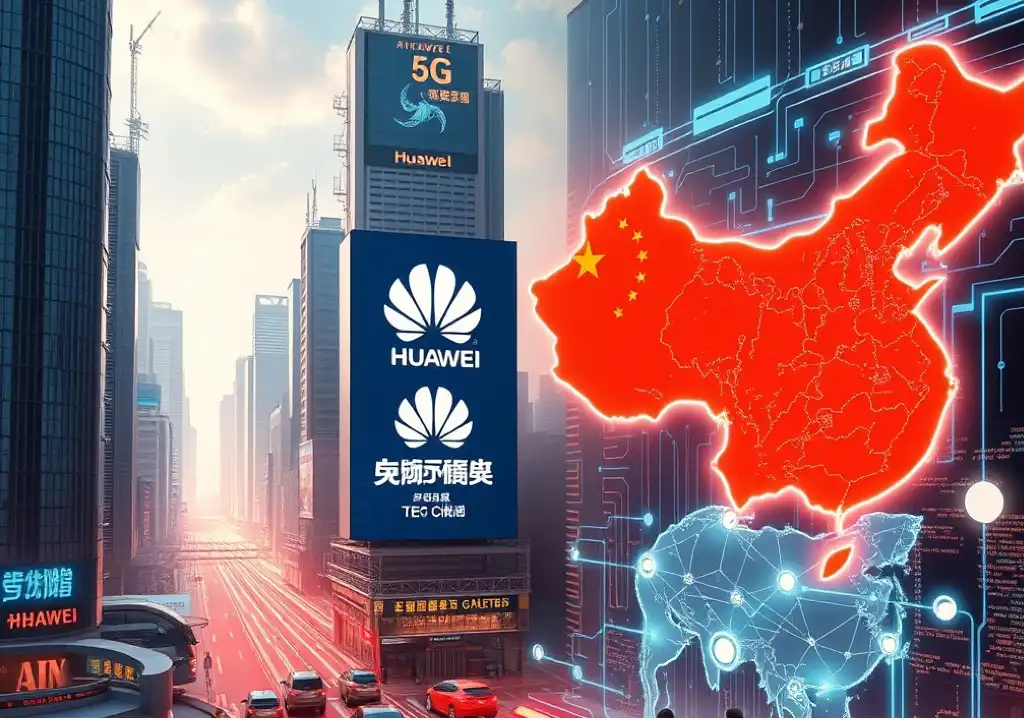Beijing’s $1.4 Trillion Investment in Tech Infrastructure
China is aggressively pursuing global leadership in critical technologies, with a focus on artificial intelligence and wireless communications, by investing over $1.4 trillion in its economy over the next six years. The initiative, supported by President Xi Jinping, aims to create cutting-edge infrastructure, including 5G networks, AI software for autonomous driving, automated factories, and surveillance systems.
This major push will reduce China’s reliance on foreign technology, enhancing the capabilities of domestic giants like Alibaba, Huawei, and SenseTime, while challenging U.S. firms. This tech nationalism mirrors past efforts like the “Made in China 2025” initiative, which faced significant opposition from the Trump administration, especially regarding companies like Huawei.
China’s Digital Infrastructure and Tech Giants Driving Innovation
The investment drive is part of a larger fiscal package, with China’s legislature expected to approve a funding package of $563 billion this year. The government’s backing will place cloud computing and data analysis firms like Alibaba and Tencent at the heart of the project, while Huawei is tasked with accelerating 5G development. Companies like Digital China Holdings are jumping in, rolling out smart housing systems where users can use facial recognition to complete leasing and identity verification.
Despite the ambitious scope of the program, critics question whether these investments will bring the economic rejuvenation they promise. Unlike previous infrastructure projects, which faced criticisms for being ineffective, this digital transformation aims to help China develop innovative technologies that could shape the future.
China’s Global Tech Ambitions Amid Economic Challenges
In the context of a post-pandemic economic slump, China is not alone in using tech investments to boost growth. South Korea has also focused on AI and wireless communications as a core part of its “New Deal” to revive its economy. Over 20 Chinese provinces have announced projects totaling over $1 trillion, with heavy involvement from private investors.
The expansion of data centers and cloud services, driven by demand from China’s top internet companies, is expected to result in considerable economic benefits. With government policies supporting the sector, these investments could stimulate other industries, creating a robust supply chain for technology-driven growth.
Impact on U.S. Companies and Global Tech Market
This massive tech investment is likely to benefit Chinese companies at the expense of their U.S. counterparts. For example, in a recent 5G base station contract, Huawei and other Chinese firms secured the lion’s share of the business, while U.S. companies like Ericsson received a much smaller portion. Moreover, Chinese companies are replacing American cloud computing services like IBM and Oracle with local technologies in some regions.
Concerns remain about the long-term impact of such investments, particularly on China’s national debt. Critics argue that new infrastructure alone won’t provide the economic stimulus needed to resolve the country’s broader financial challenges. However, companies like Digital China are optimistic, with expectations for significant revenue from ongoing projects, including the development of smart city systems in cities like Guangzhou.
This investment in digital infrastructure represents a critical moment for China as it strives to reshape its economy and secure a leading position in the global technology race.

